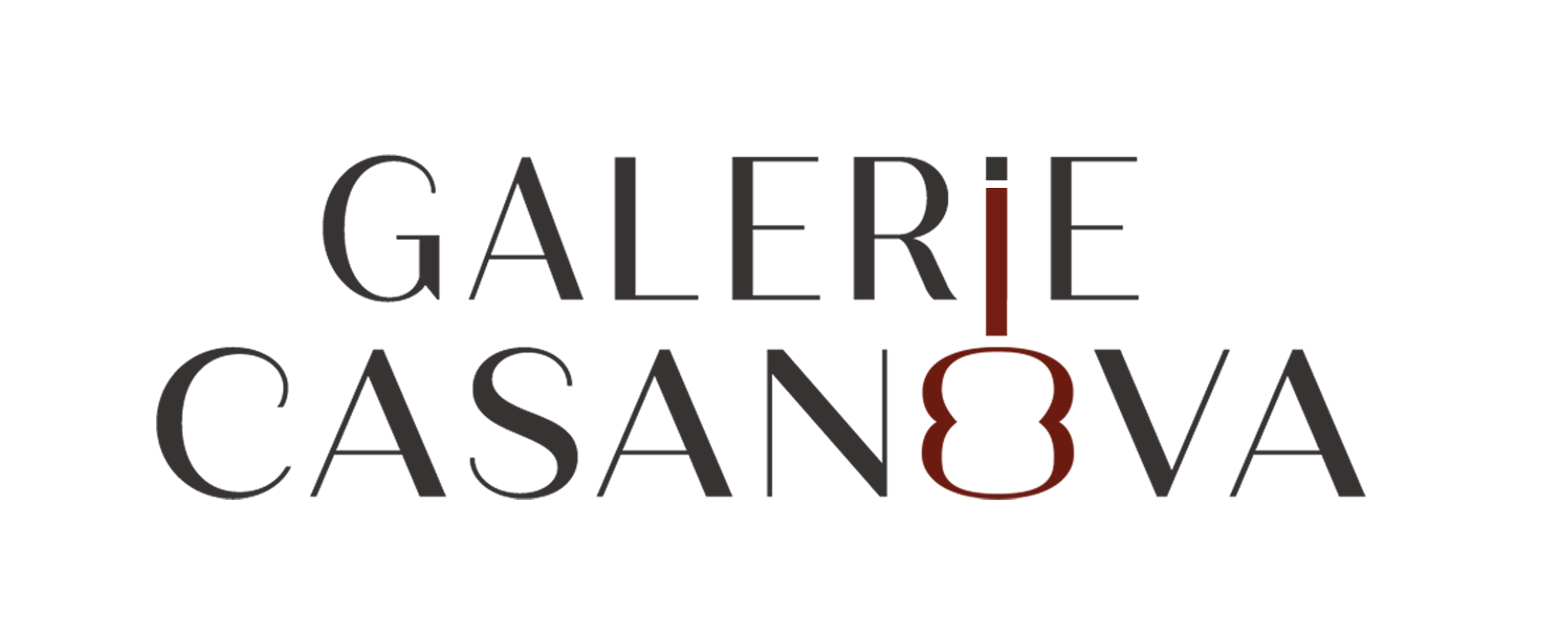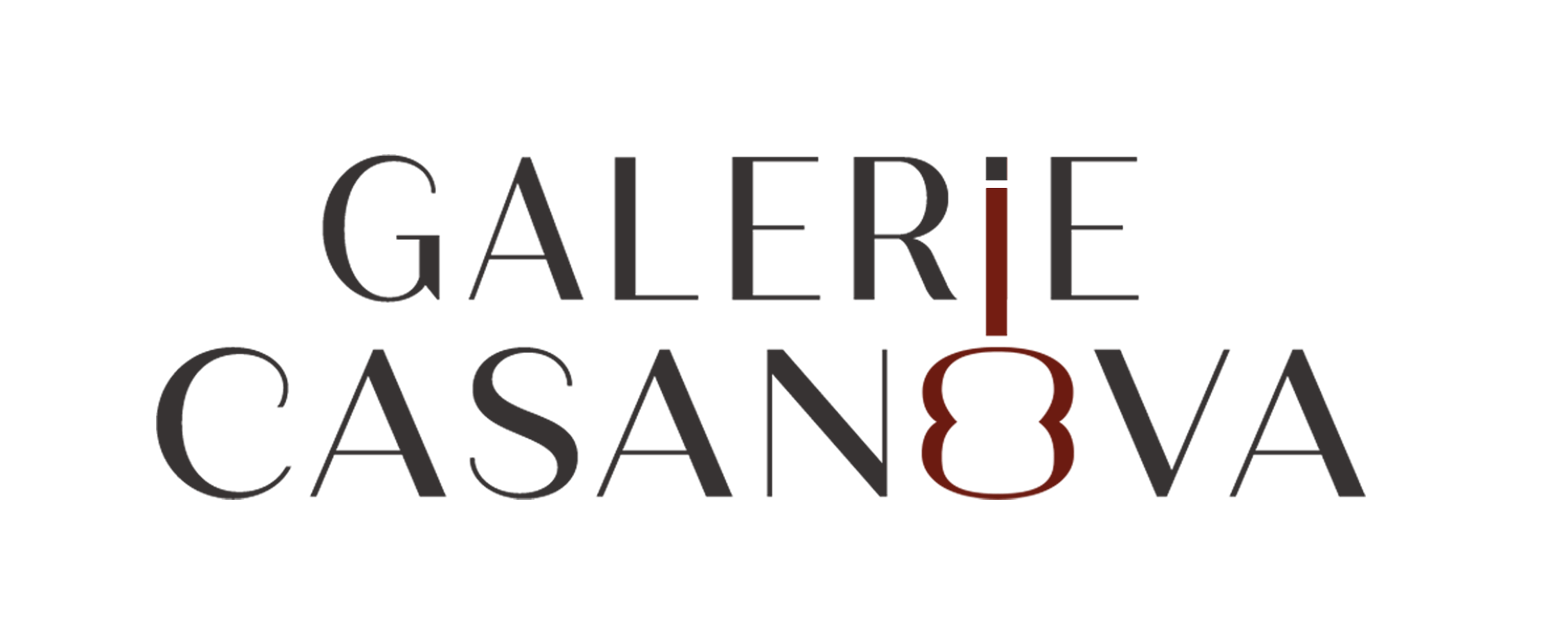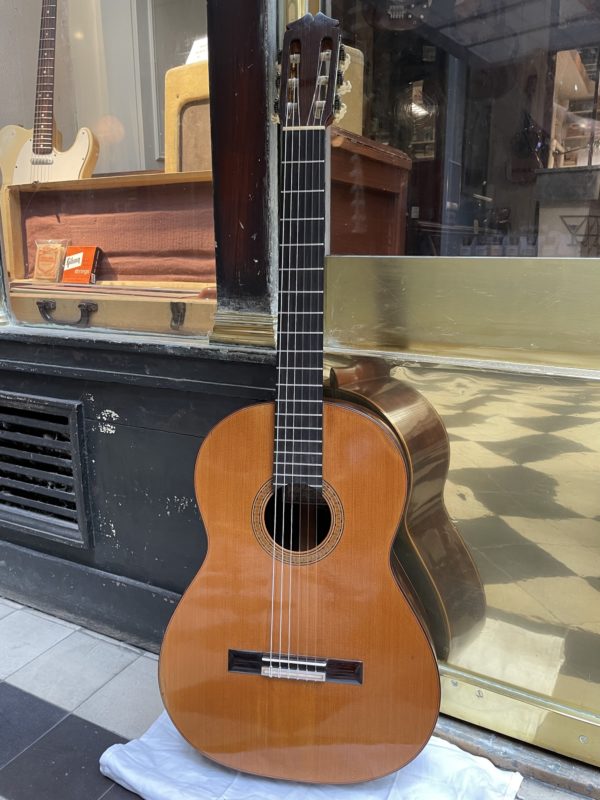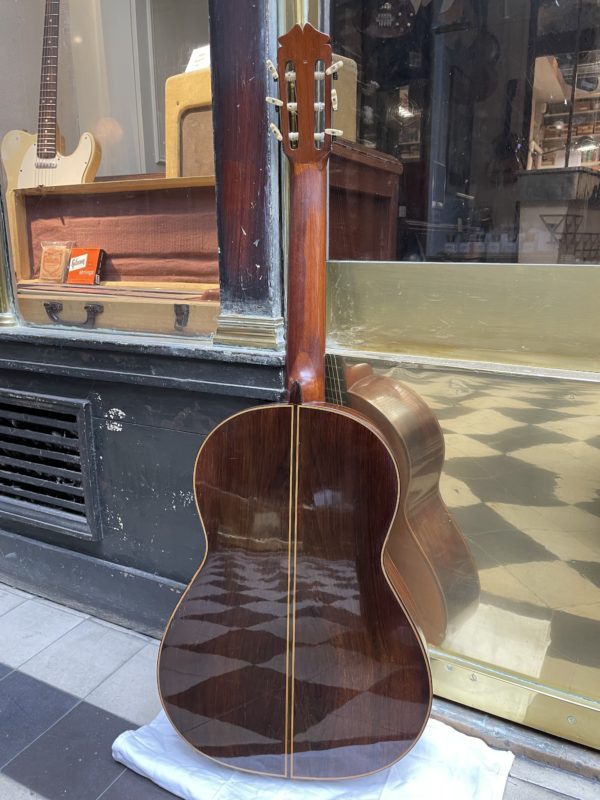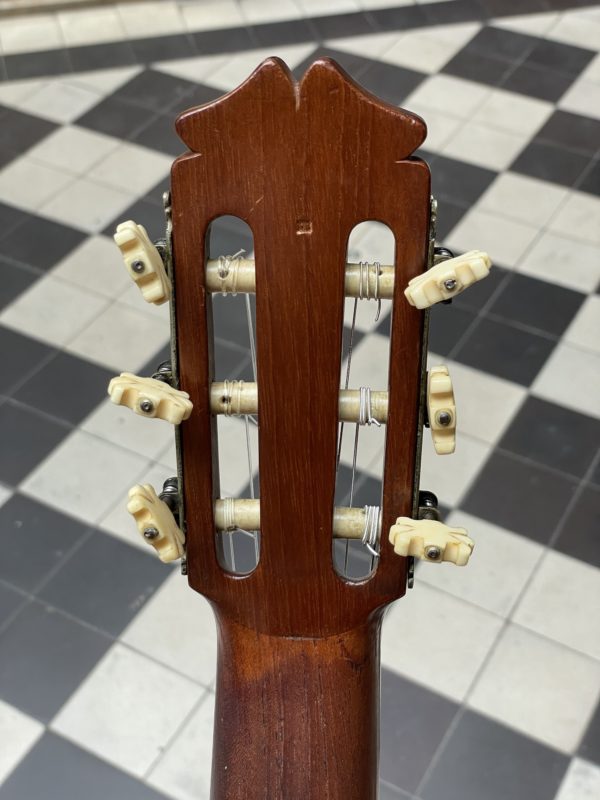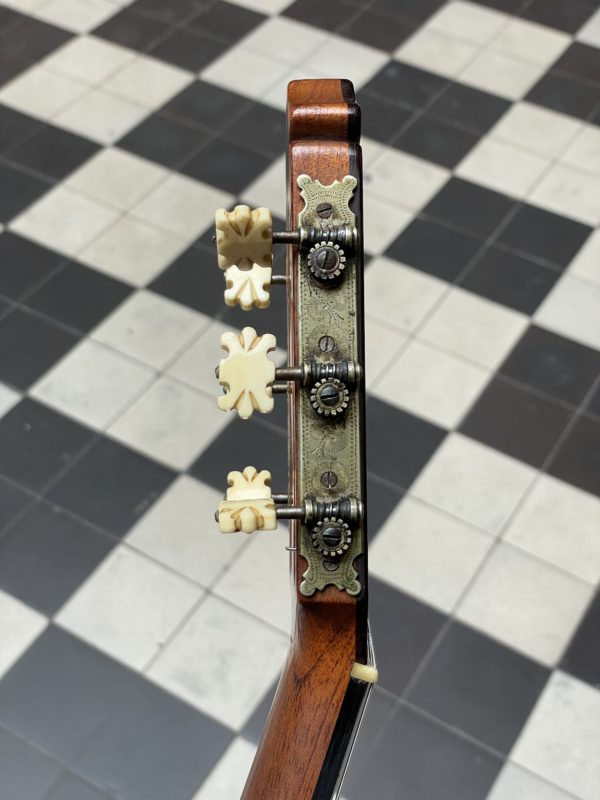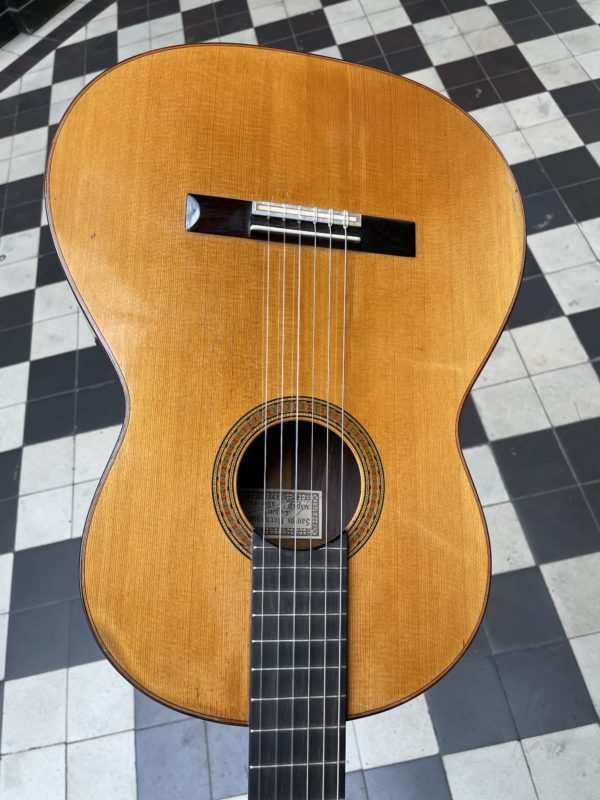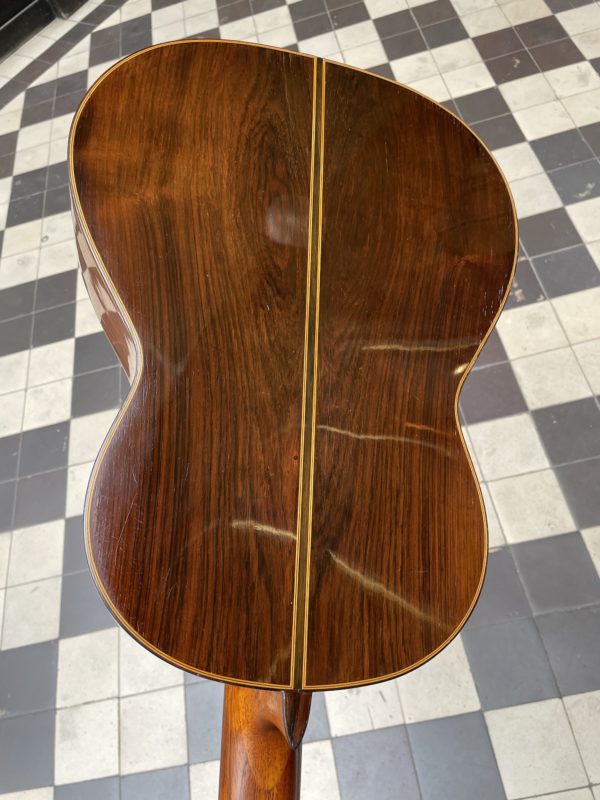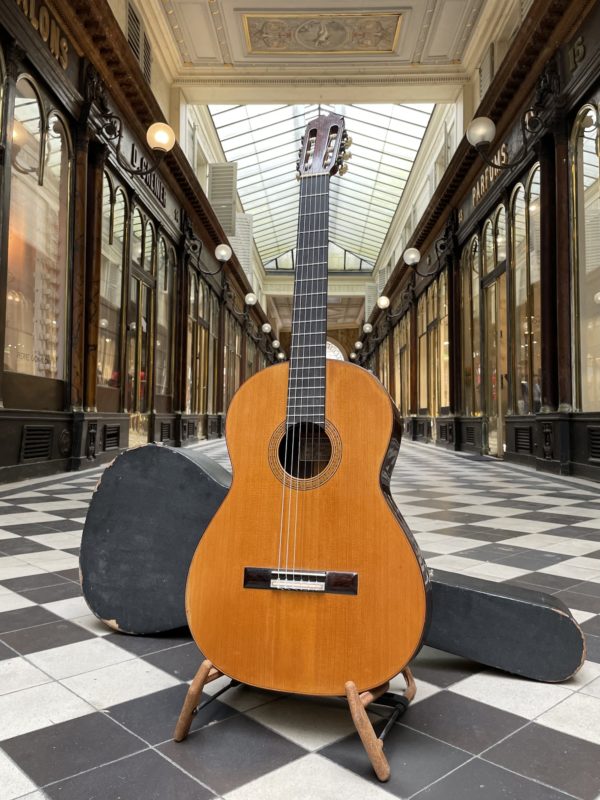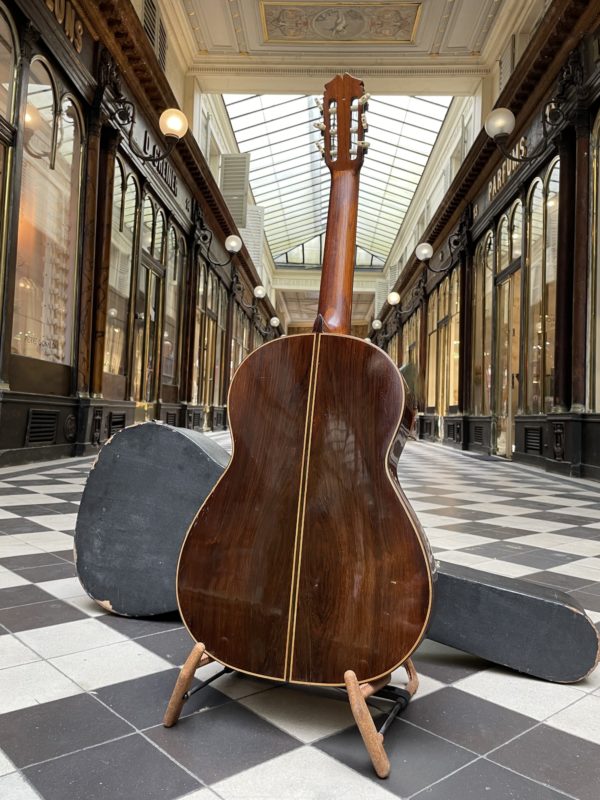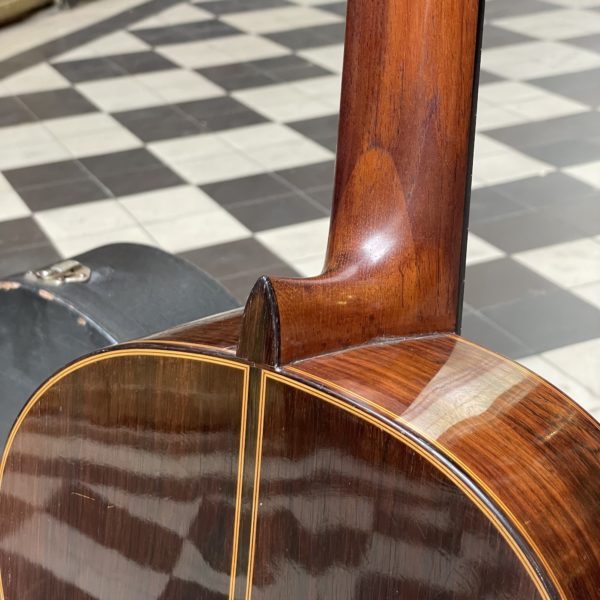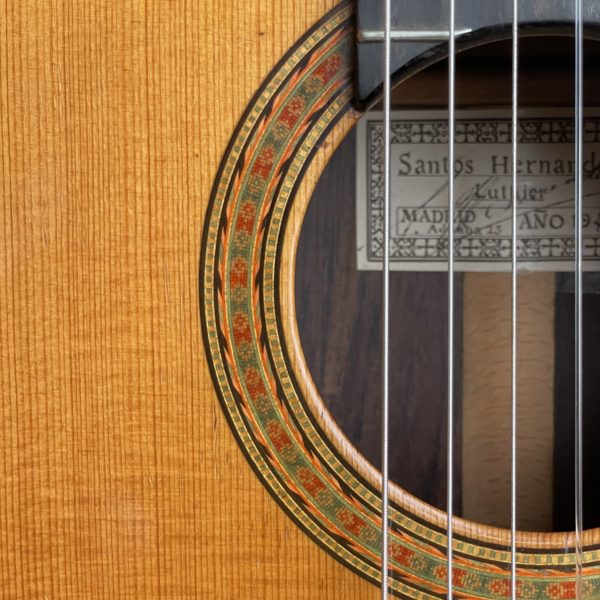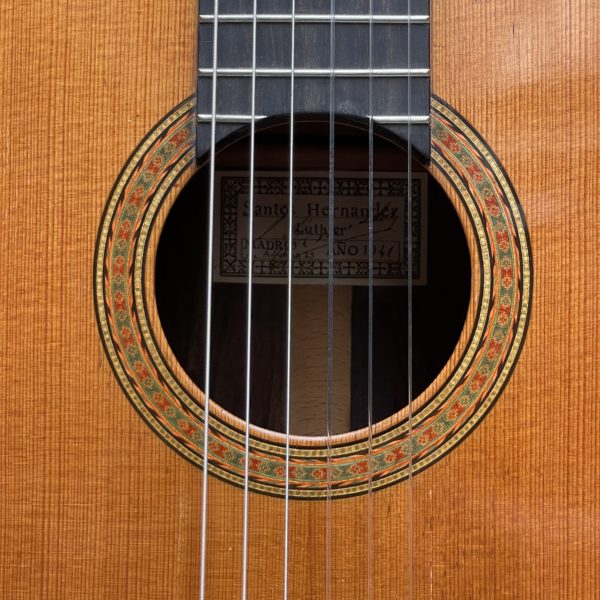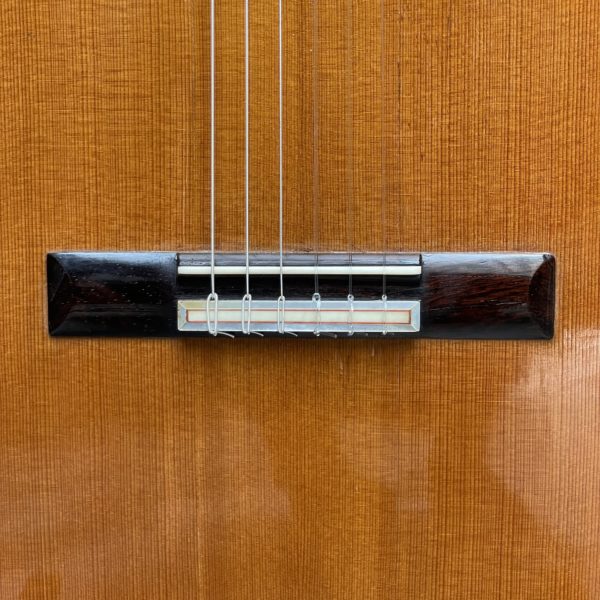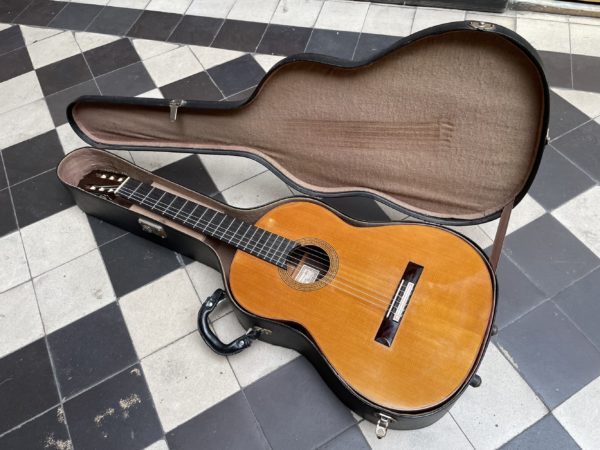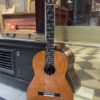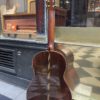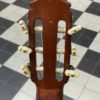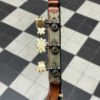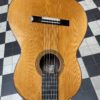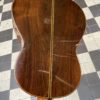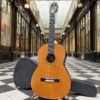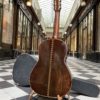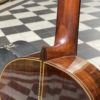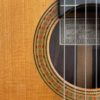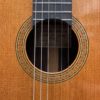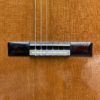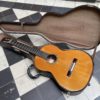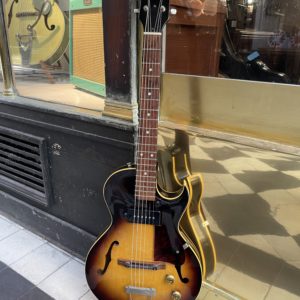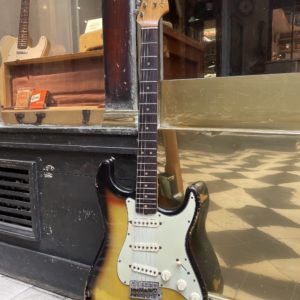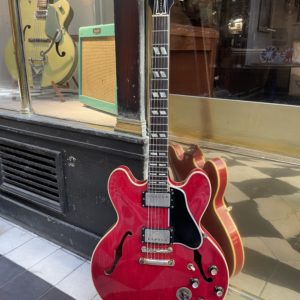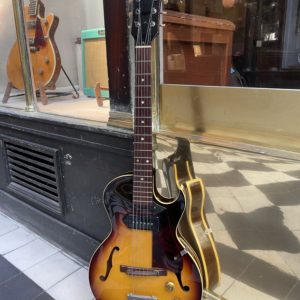1941 SANTOS HERNANDEZ
The prices indicated correspond to the price in the case of payment in-store or by bank transfer. In the case of payment by credit card via the website, a processing fee of [3.25% + €0.25]* will be applied to the total amount of the basket, including delivery costs.
Splendid concert guitar by the master luthier Santos Hernández, built in Madrid in the year 1941.
The name of Hernández reigns among the greatest in the pantheon of the Spanish classical guitar builders, alongside those of Antonio de Torres or Manuel Ramírez, and for good reason: his contributions to the development of the instrument at the beginning of the 20th century are significant, and it is certain that his modest and refined lutherie work will have been a source of inspiration both for his contemporaries and for those who would come after him.
Born in 1874, Hernández made an early entry into the world of lutherie: according to various sources, he was introduced at the age of 12 to the workshop of Antonio Viudes, a builder close to his family, with whom he would remain as an apprentice until the beginning of the following decade. Around the age of 25, after his military service, he was recruited by Manuel Ramírez, one of the most eminent luthiers of the beginning of the last century who himself was in the direct line of Antonio de Torres, whose guitars he produced facsimiles of. It was alongside Ramírez that Hernández would truly see his talent flourish, becoming one of the most loyal workers of the Madrid master who would elevate him to the rank of workshop foreman. The instruments produced by Hernández during this period enjoyed a great reputation, and even entered the legend of the Spanish guitar since one of them, produced in the 1912 vintage, would be played by none other than Segovia for several decades! According to R. Bruné’s article Segovia’s 1912 Manuel Ramírez, it was this same instrument that was maintained by Hermann Hauser I during a visit from Segovia to Germany, allowing the Bavarian luthier to study in depth and take the measure of the work of his Spanish counterpart – and thus, by integrating some of the elements noted in his own guitars, to contribute to the diffusion of the style of Santos Hernández.
In 1921, after the death of Manuel Ramírez, Hernández established himself in his own name at the address of Aduana 27 in Madrid (the street numbering would then be changed, and as such later labels would appear marked with the number 23, as on the guitar presented here). With a good thirty years of experience, if we discount his time in the army, he continued to build high-end instruments for both concert and flamenco playing (we know the exorbitant price of 1000 pesetas for a 1923 guitar in spruce and Rio rosewood) until his last days in 1943. The guitar presented here appeared at the twilight of Hernández’s career, and bears witness to all of his accumulated experience: an exceptional choice of wood with a breathtaking Brazilian rosewood on the back and sides of the instrument, and for the soundboard a spruce with a tight and regular grain (a sign that it was perfectly quarter-sawn, a cut that allows for the production of soundboards with optimal acoustic qualities). Another typical feature of Hernández’s work is the bracing of the top implemented on this instrument: in addition to an oblique harmonic bar descending towards the treble side, the fan bracing is made up of five short strands, and closed by two longer diagonal bars on the lower part of the top. This assembly is extremely fine, so much so that we find an eminently balanced instrument with a beautiful roundness of the bass and tempered treble – a timbre in the image of what the aesthetics of the guitar convey! The decorative elements are very sober: a rosette inlaid in colored wood with a central circle forming a diamond pattern, surrounded by two outer bands in chevron and square patterns; the rosewood bridge is decorated with a simple bone plate surrounded by a strip of colored wood and mother-of-pearl. The neck of the instrument is made of cedro, with a rosewood headstock veneer, the fingerboard is made of ebony.
This fabulous instrument comes to us superbly preserved, with all its original parts – including its French polish and its tuners. In addition to the luthier’s signature on the label, we note the presence of his stamp on the extension of the neck block as well as an inscription made by his hand under the table on the bass side – Construide por S Hernandez Madrid 1941. The guitar has been restored and fully tuned up in our workshop, and is to this day in optimal playing condition with good action and accurate intonation.
Sold in its original hardshell case, accompanied by a fitted modern case as well as its certificate of authenticity made by Jérôme Casanova.
Pre-Convention CITES certificate provided.
CIC applied for December 5th 2024
